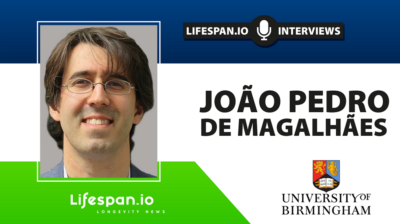Rejuvenation Roundup February 2024
- We feature interviews. cancer treatments, and epigenetics this month.

The leap year is here, so we’ve had an extra day to showcase interviews and report on all-new ways to combat cancer. Here’s everything that we’ve published in February.
LEAF News
Interviews
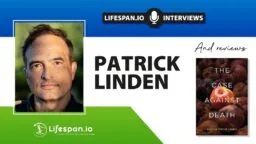 Patrick Linden’s Case Against Death: People come to the longevity field from all walks of life, bringing their unique expertise along. An activist engages in advocacy and fundraising. A physicist applies theories from a specific domain of knowledge. What happens when a philosopher joins in? Naturally, that person writes a book.
Patrick Linden’s Case Against Death: People come to the longevity field from all walks of life, bringing their unique expertise along. An activist engages in advocacy and fundraising. A physicist applies theories from a specific domain of knowledge. What happens when a philosopher joins in? Naturally, that person writes a book.
Solving Atherosclerosis: The Small but Mighty Molecule: Cyclarity Therapeutics is developing an affordable, plaque-busting small molecule that may be the cure for the world’s number one killer: cardiovascular disease. With human trials planned for this year, we decided that it was time to catch up with Cyclarity and its CEO of Scientific Affairs, Dr. Matthew O’Connor, to see how things were going.
Journal Club
We discussed a new paper that includes Dr. David Sinclair among its authors. This theory explains aging as a loss of information that leads to old age, ill health, and ultimately death. There are researchers working on solutions to this loss of information, and we reviewed this paper and discussed how it stacks up against other popular theories.
Advocacy and Analysis
 The Latest in Rapamycin Research on Humans: Reviewers have gone through the latest updates on studies featuring rapamycin and its derivatives in The Lancet Healthy Longevity. Not many compounds actually extend life in healthy animals, but rapamycin is indeed one of them.
The Latest in Rapamycin Research on Humans: Reviewers have gone through the latest updates on studies featuring rapamycin and its derivatives in The Lancet Healthy Longevity. Not many compounds actually extend life in healthy animals, but rapamycin is indeed one of them.
Research Roundup
How Cardiovascular Mortality Goes Down with Exercise: In the International Journal of Cardiology, researchers have described five styles of exercise and compared them to mortality risk. It is well known that physical activity is associated with a significantly diminished risk of death by cardiovascular disease, the leading cause of death around the world.
 Rapamycin Rescues Hair Growth in Mice: A new study has found that autophagy plays an important role in activating hair follicle stem cells and keeping the hair growth cycle going. By boosting autophagy, rapamycin improved hair growth in mice and in a human hair organ culture.
Rapamycin Rescues Hair Growth in Mice: A new study has found that autophagy plays an important role in activating hair follicle stem cells and keeping the hair growth cycle going. By boosting autophagy, rapamycin improved hair growth in mice and in a human hair organ culture.
Stress Impairs Gut Health via the Microbiome: A new study done in mice sheds light on how mental stress contributes to intestinal problems by altering microbiome composition. Some experiences are not called “gut-wrenching” just metaphorically, as the brain can indeed influence gastrointestinal function in a myriad of ways.
 What Time-Restricted Eating Does and Doesn’t Affect: In Cell Reports Medicine, researchers have published a study demonstrating that, while it has no impact on many aspects of intestinal function, time-restricted eating (TRE) reduces markers of blood glucose.
What Time-Restricted Eating Does and Doesn’t Affect: In Cell Reports Medicine, researchers have published a study demonstrating that, while it has no impact on many aspects of intestinal function, time-restricted eating (TRE) reduces markers of blood glucose.
New Combination Therapy Eradicates Cancer in Mice: Scientists have discovered a mechanism that lets senescent tumor cells undermine chemotherapy. With this mechanism blocked, standard chemotherapy led to complete regression of mammary tumors in mice.
 Chitosan Treatment Reduces Ovarian Senescence in Mice: Recent research published in Immunity and Ageing suggests that chitosan can be used as a potential treatment to alleviate some of the aging processes in ovaries. Right now, Mother Nature has imposed some tough challenges on human females. They need to make the decision about motherhood sooner rather than later.
Chitosan Treatment Reduces Ovarian Senescence in Mice: Recent research published in Immunity and Ageing suggests that chitosan can be used as a potential treatment to alleviate some of the aging processes in ovaries. Right now, Mother Nature has imposed some tough challenges on human females. They need to make the decision about motherhood sooner rather than later.
Caloric Restriction Extends Reproductive Lifespan in Hens: According to a new study, prolonged severe caloric restriction in hens, known as “molting”, restores their egg-laying capacity, slows aging, and increases survival. The domestic hen is not the go-to animal model in aging studies, but perhaps it could offer new insights. A hen’s lifespan is about 6-8 years.
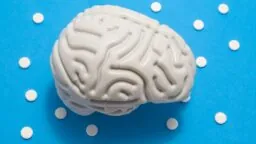 Exhausted Microglia Accumulate in Alzheimer’s: A recent paper published in Immunity has described the accumulation of exhausted microglia in the brains of people who are vulnerable to Alzheimer’s, potentially spurring and worsening the disease.
Exhausted Microglia Accumulate in Alzheimer’s: A recent paper published in Immunity has described the accumulation of exhausted microglia in the brains of people who are vulnerable to Alzheimer’s, potentially spurring and worsening the disease.
Reversing Senescence in Cells Using Ultrasound: A new study claims that low-frequency ultrasound can reverse aspects of replicative and chemically induced senescence in vitro. This is in contrast to the current widespread strategy of senolytics, drugs that eliminate senescent cells.
 Predicting Dementia a Decade in Advance: In Nature Aging, researchers have published a method of predicting dementia over a decade before it actually occurs. It was possible to do this previously, but this is meant to be done accurately in a clinical setting.
Predicting Dementia a Decade in Advance: In Nature Aging, researchers have published a method of predicting dementia over a decade before it actually occurs. It was possible to do this previously, but this is meant to be done accurately in a clinical setting.
Mutation-Carrying CAR T Cells Eradicate Cancer in Mice: Scientists have found that giving CAR T cells a particular oncogenic mutation greatly improves their efficiency against blood and solid cancers. One reason why cancer is so dangerous is that oncogenic mutations boost cancer cells’ survivability, just like a genetically modified monster in a sci-fi movie. CAR T cells may be able to gain some of the same power.
 Rejuvenating Cells with Epigenetic Reprogramming: The authors of a recent review published in Ageing Research Reviews summarize the research on epigenetic reprogramming and its potential as a rejuvenation therapy.
Rejuvenating Cells with Epigenetic Reprogramming: The authors of a recent review published in Ageing Research Reviews summarize the research on epigenetic reprogramming and its potential as a rejuvenation therapy.
How Aging Leads to a Gene Transcription Problem: In Nature Genetics, researchers have described how a defect in RNA transcription constitutes a previously undiscovered mechanism of aging. Gene expression begins when a cell transcribes RNA from DNA protein codes.
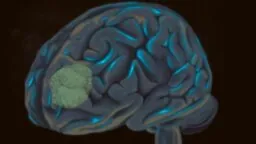 New Drug Shows Promise Against Glioblastoma: Scientists have discovered a small molecule that effectively kills glioblastoma, a highly aggressive and untreatable brain cancer, in cellular cultures while having no effects on healthy cells.
New Drug Shows Promise Against Glioblastoma: Scientists have discovered a small molecule that effectively kills glioblastoma, a highly aggressive and untreatable brain cancer, in cellular cultures while having no effects on healthy cells.
Connecting Gut Metabolism to Grip Strength: In Aging, a team of researchers has outlined a possible relationship between low grip strength and compounds in the gut microbiome. Metabolism is related to age-related muscle dysfunction, including inflammation, oxidative stress, and accumulation of advanced glycation end-products.
 How Individual Lifestyle Factors Affect Lifespan: A new study has reported that adopting more healthy lifestyle habits continuously lowers mortality risk, resulting in many years of added life expectancy.
How Individual Lifestyle Factors Affect Lifespan: A new study has reported that adopting more healthy lifestyle habits continuously lowers mortality risk, resulting in many years of added life expectancy.
Educational Attainment Linked to Lower Mortality Risk: A systematic review and meta-analysis published in The Lancet suggests that more years of education is linked to reduced all-cause mortality in adults. Educational attainment is associated with better health and improvements in some measurements of mortality.
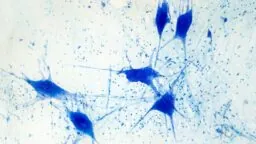 A Nanoparticle Reduces Brain Inflammation in Mice: A recent preprint paper from researchers at Sachi Bio has described how this company’s technology can be used to alleviate brain inflammation in a mouse model. Along with the infamous amyloid beta, tau is well-known as a pathological factor in both Alzheimer’s and regular aging.
A Nanoparticle Reduces Brain Inflammation in Mice: A recent preprint paper from researchers at Sachi Bio has described how this company’s technology can be used to alleviate brain inflammation in a mouse model. Along with the infamous amyloid beta, tau is well-known as a pathological factor in both Alzheimer’s and regular aging.
Fasting-Mimicking Diet Might Extend Lifespan in Humans: A new study into Valter Longo’s fasting-mimicking diet shows metabolic and immune benefits that, according to a simulation, might translate into years of additional lifespan.
 Epigenetic Clocks Help Predict Health Outcomes: Researchers publishing in PNAS have found that well-known epigenetic clocks are valuable in predicting health outcomes, including mortality, in human beings. An epigenetic clock is a biochemical test that uses DNA methylation levels and accumulation of methyl groups on DNA to determine biological age.
Epigenetic Clocks Help Predict Health Outcomes: Researchers publishing in PNAS have found that well-known epigenetic clocks are valuable in predicting health outcomes, including mortality, in human beings. An epigenetic clock is a biochemical test that uses DNA methylation levels and accumulation of methyl groups on DNA to determine biological age.
Physically Fit Older People Have Better Visual Processing: Publishing a study in GeroScience featuring people over 80 years old, researchers have described a link between physical fitness and maintenance of executive functions, the basic abilities involved in performing the fundamental goal-oriented behaviors necessary for everyday life.
 Higher Abdominal Fat Associated with Cognitive Decline: A group of Japanese researchers has published a paper reporting an association between higher abdominal fat levels and cognitive decline. Developing drugs to treat this condition is challenging, so lifestyle interventions may be more immediately feasible.
Higher Abdominal Fat Associated with Cognitive Decline: A group of Japanese researchers has published a paper reporting an association between higher abdominal fat levels and cognitive decline. Developing drugs to treat this condition is challenging, so lifestyle interventions may be more immediately feasible.
Niacin May Increase Heart Disease Risk: Niacin, a popular food fortifier, supplement, and NAD precursor, might increase the risk of major adverse cardiovascular events by as much as twofold.
Short-term periodic restricted feeding elicits metabolome-microbiome signatures with sex dimorphic persistence in primate intervention: As many calorie restriction interventions are difficult to sustain, the authors propose that this short-term diet may be easier to adhere to and have benefits directly relevant to human aging.
Dietary protein intake in midlife in relation to healthy aging – results from the prospective Nurses’ Health Study cohort: Dietary protein intake, especially plant protein, in midlife, is associated with higher odds of healthy aging and with several domains of positive health status in a large cohort of female nurses.
β-Nicotinamide Mononucleotide Promotes Cell Proliferation and Hair Growth by Reducing Oxidative Stress: The results indicated that NMN can reverse hair follicle atrophy, hair thinning, and hair sparsity induced by dihydrotestosterone (DHT).
Intermittent rapamycin feeding recapitulates some effects of continuous treatment while maintaining lifespan extension: Chronic and intermittent rapamycin treatments increased lifespan equally in male mice, while in females, chronic treatment resulted in slightly higher survival.
Alterations of the gut microbiome are associated with epigenetic age acceleration and physical fitness: Overall, these data suggest that alterations in the microbiome can be associated with epigenetic age acceleration and physical fitness.
Exploring the effects of Dasatinib, Quercetin, and Fisetin on DNA methylation clocks: a longitudinal study on senolytic interventions: The addition of fisetin to the treatment resulted in non-significant increases in epigenetic age acceleration, suggesting a potential mitigating effect of fisetin on the impact of dasatinib and quercetin on epigenetic aging.
A unified framework for evolutionary genetic and physiological theories of aging: This new framework will help to generate testable hypotheses of how the hallmarks of aging are shaped by natural selection.
Which predicts longevity better: Satisfaction with life or purpose in life?: Purpose in life is a robust predictor of mortality, and thus a key dimension of well-being to attend to as people age, while the predictive power of life satisfaction is more dependent on the choice of covariates.
News Nuggets
 Rejuvenate Bio Develops Gene Therapy for Dog Arthritis: Rejuvenate Bio has announced a partnership with a leading animal health company to develop a gene therapy for canine osteoarthritis. The identity of the partnering global company is as yet unknown.
Rejuvenate Bio Develops Gene Therapy for Dog Arthritis: Rejuvenate Bio has announced a partnership with a leading animal health company to develop a gene therapy for canine osteoarthritis. The identity of the partnering global company is as yet unknown.
Meaningful Improvements in Human Trial For Sarcopenia: Rejuvenate Biomed has recently concluded a clinical trial for sarcopenia. The results have shown “meaningful improvements in muscle strength, function and fatigue resistance”. Sarcopenia is an age-related progressive loss of muscle mass and strength that affects many older adults.


